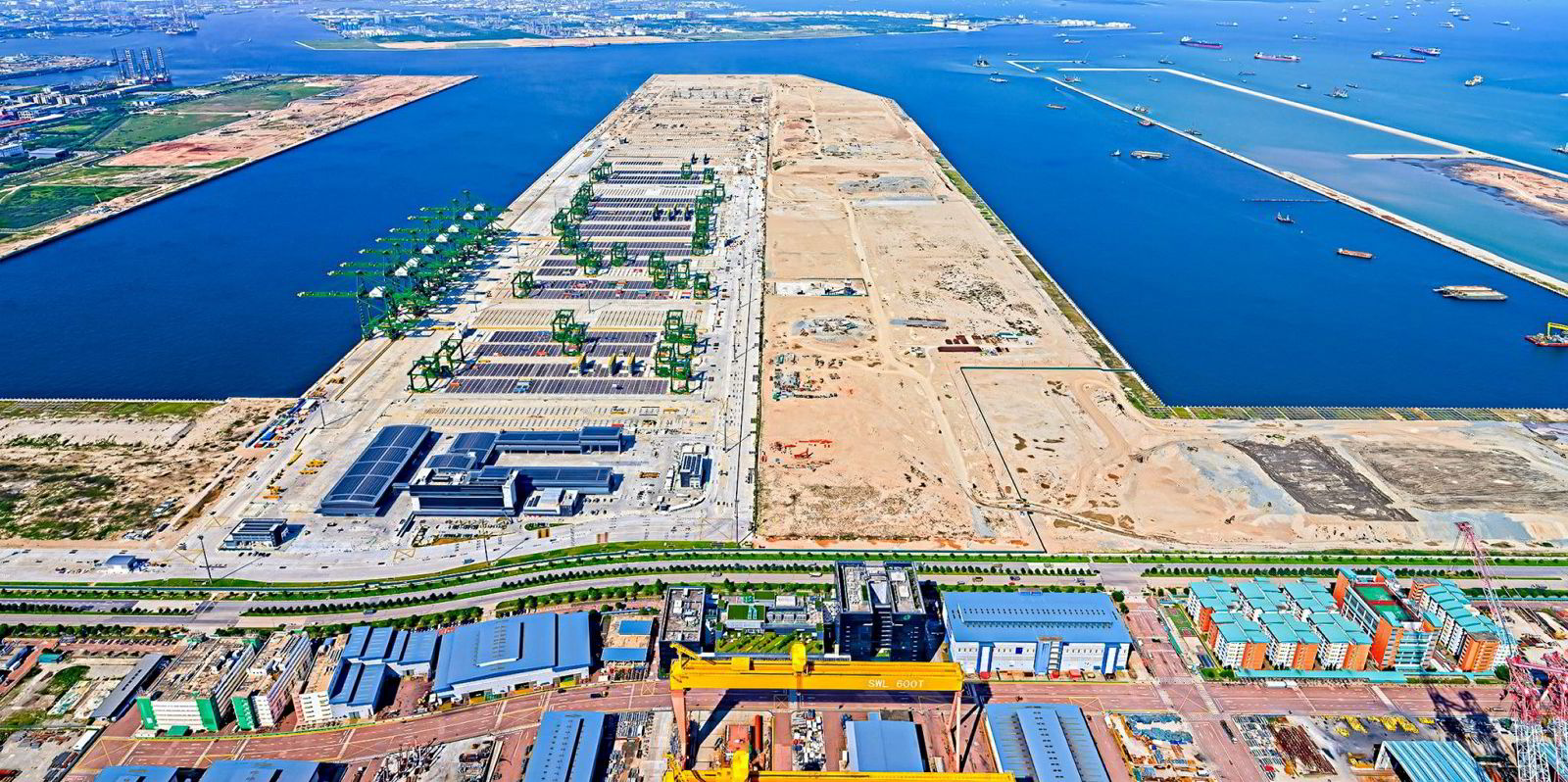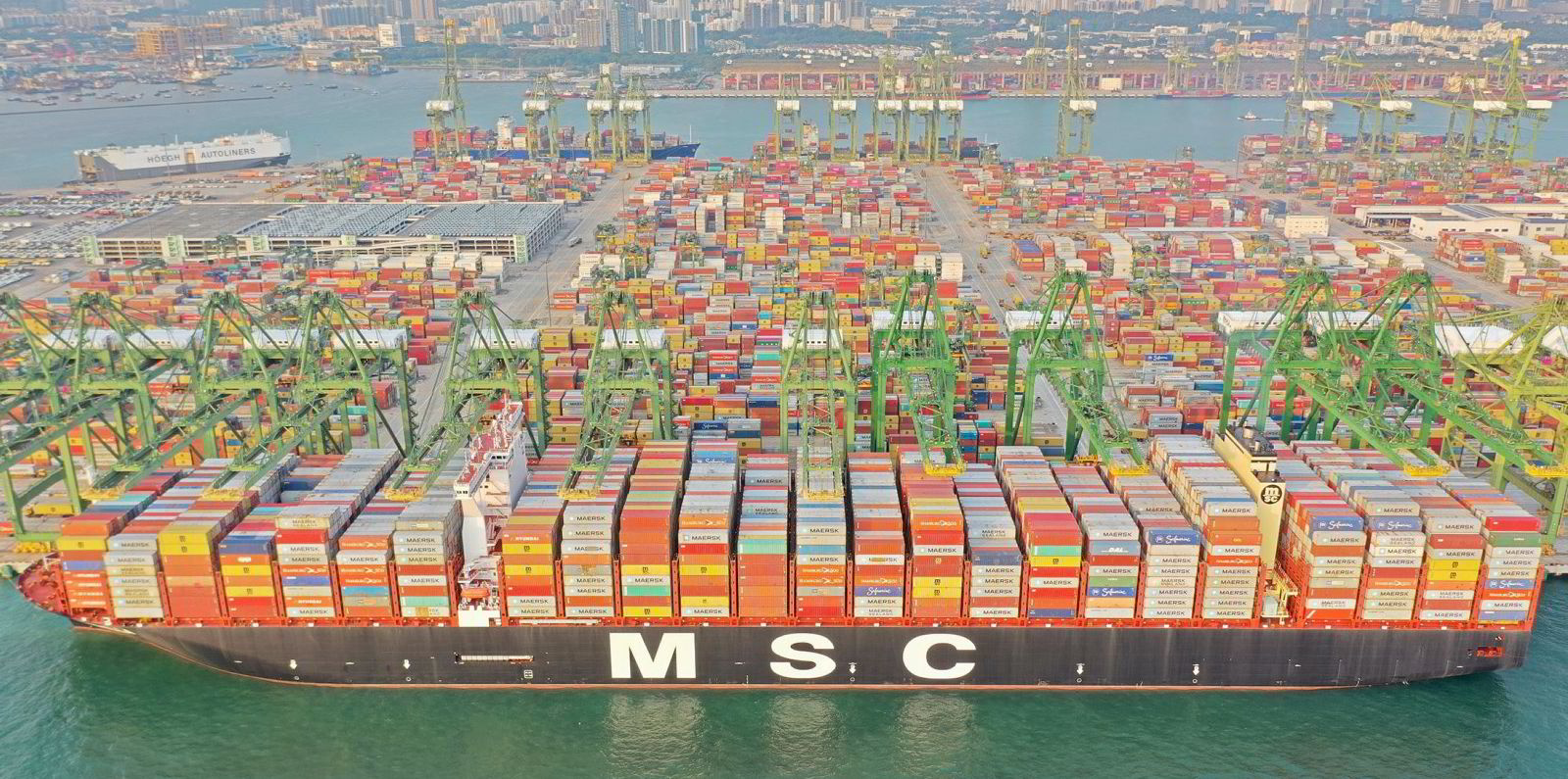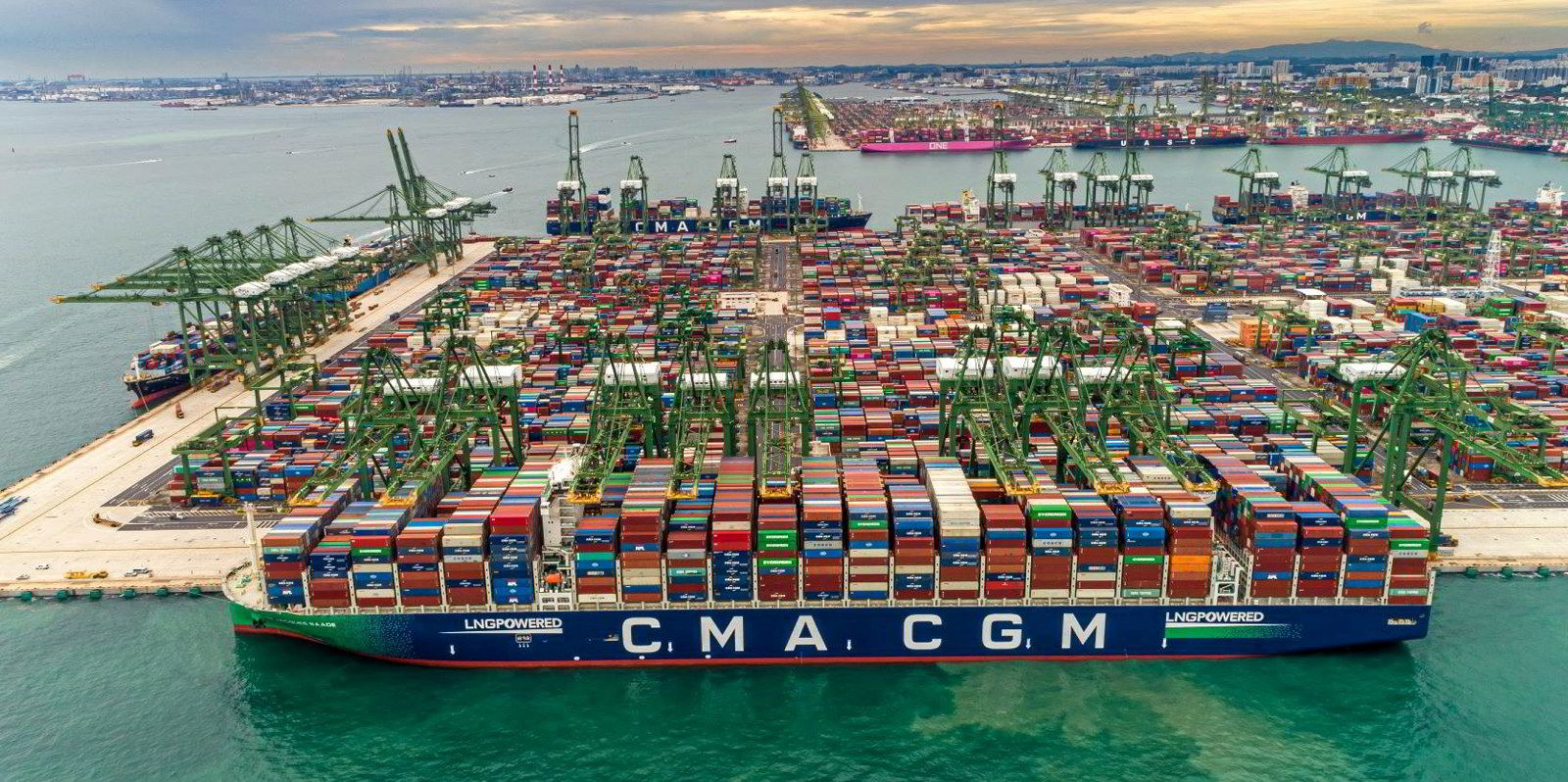Singapore’s PSA is boosting vessel berthing capacity to tackle massive congestion at the world’s second-largest container port.
It has reactivated older berths and yards at Keppel Terminal to raise the weekly number of containers that can be handled by 50,000 teu to 820,000 teu.
In addition to the eight existing berths in Tuas Port, three new berths will begin operations later this year to increase handling capacity.
The Maritime and Port Authority of Singapore (MPA) said it has been working with PSA and the industry since late 2023 to prepare for higher vessel arrivals.
“The MPA and PSA are working closely with container lines and regional feeders to update them on their berth availability and advising them on the arrival times to minimise delays in berthing,” the MPA said.
The diversion of vessels around the Cape of Good Hope due to the Red Sea crisis has disrupted arrival schedules at major ports and caused a bunching effect, according to the MPA.
There has been a significant increase in vessel arrivals in Singapore, with container volumes in the first four months of this year up 8.8% year on year to 13.36m teu.
“The increase in container vessels arriving off-schedule and the increased container volumes handled in Singapore has resulted in longer vessels’ wait time for a container berth,” the MPA said.
“While most container vessels are berthed on arrival, port operator PSA has worked with liners to adjust arrival schedules where feasible, and where this is not feasible, the average waiting time for container vessels is about two to three days.”
The MPA said the increased demand for container handling in Singapore is a result of several lines discharging more containers in Singapore as they forgo subsequent voyages to catch up on their schedules. The number of containers handled per vessel has also increased.
“Added to these demands, container lines are also leveraging PSA’s cargo handling capabilities to help manage their container stowage on board vessels to facilitate expeditious discharge of cargo for their subsequent port calls,” the MPA added.
Singapore was earlier this week dubbed the “new congestion hot spot” by container shipping data provider Linerlytica.
“Port congestion has returned to haunt the container markets, with Singapore becoming the latest chokepoint,” it said in a blog post.
“Berthing delays at the world’s second-largest container port of up to seven days with the total capacity waiting to berth rising to 450,000 teu in recent days.
“The severe congestion has forced some carriers to omit their planned Singapore port calls.”
Linerlytica said the delays have also resulted in vessel bunching, causing spillover congestion and schedule disruptions at downstream ports.
“The rise in port congestion has taken more than 400,000 teu of vessel capacity out of circulation in the last week alone, with a further escalation in the situation expected in the coming month.”
The MPA said there is “no delayed berthing” for other vessels that call at Singapore, which is about two-thirds of arrivals.
“For the tanker and bulk vessel segment, the resupply and bunkering activities ... are not affected,” it added.





